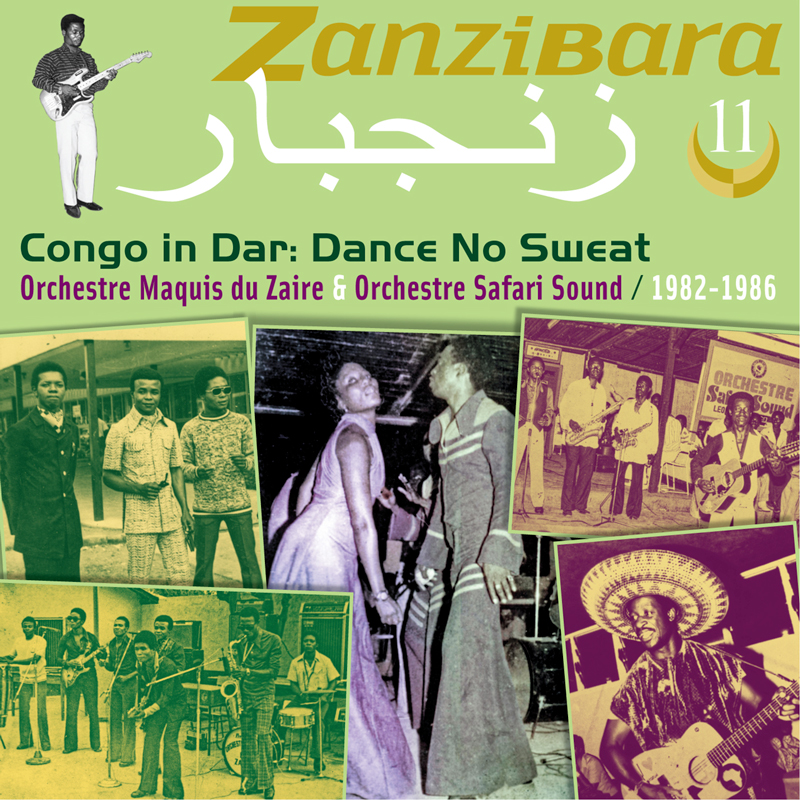Orchestre Maquis du Zaire & Orchestre Safari Sound – Zanzibara 11: Congo in Dar, Dance No Sweat 1982-1986 (Buda Musique, 2024)
In the early 1980s, Dar es Salaam, Tanzania’s coastal hub with nearly one million residents, faced economic challenges. The country grappled with the aftermath of two decades of socialist Ujamaa policies, a collapsed East African community, and costly conflicts like the 1979 war against Uganda’s Idi Amin. Despite these struggles, the city came alive at night with a thriving music scene that included more than 20 professional bands performing in local nightclubs. The music style, known in Swahili as muziki wa dansi, became a cultural staple.
The 1960s and 1970s saw an influx of musicians from Congo (then Zaire), drawn to Tanzania’s upmarket clubs and hotels for temporary gigs. Some artists chose to stay, including members who later formed Orchestre Maquis and Orchestre Safari Sound. Like other independent bands, the Congolese musicians faced challenges maintaining financial stability.
This album highlights the Congolese rooted music of these two talented ensembles. Both bands featured intricate guitars, dynamic brass sections, irresistible rhythms, and engaging harmonies call and response vocals.
Orchestre Maquis, known for their popular dance style “Kamanyola Bila Jasho” (“dance Kamanyola without sweating”), found a creative solution by embracing Ujamaa values. They acquired land on the city’s outskirts, sold produce at the Kariakoo market, and officially registered as the Orchestre Maquis Company (OMACO).
Meanwhile, Orchestre Safari Sound emerged when Hugo Kisima, a local contractor and owner of Safari Resort, established the band by combining members from Safaris Nkoy. Alongside Orchestre Maquis, Orchestre Safari Sound became one of the most significant privately-run bands, standing out among the state-sponsored groups dominating Dar es Salaam’s nightclub scene in the 1980s.
Track list:
Orchestre Maquis: Seya; Double Double; Karabandika; Nasononeka; Maria Nyerere.
Orchestre Safari Sound: Durria Msongamano; Mwanakwetu; Burhani Mlanzi; Marashi ya Pemba; Garba.


